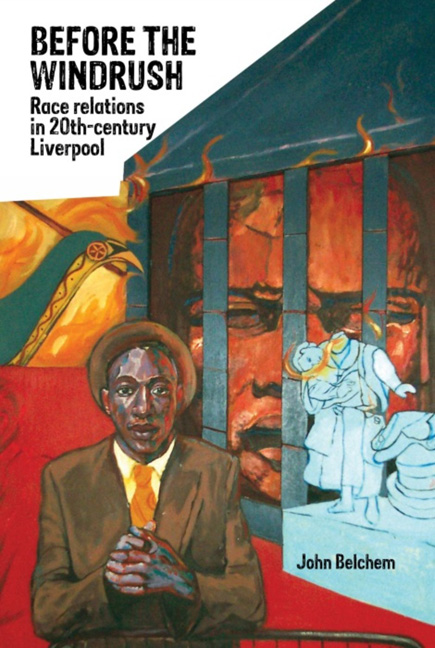Book contents
- Frontmatter
- Dedication
- Contents
- List of illustrations
- List of tables
- List of abbreviations
- Acknowledgements
- Preface
- Introduction: ‘The most disturbing case of racial disadvantage in the United Kingdom’
- Chapter One Edwardian cosmopolitanism
- Chapter Two Riot, miscegenation and inter-war depression
- Chapter Three Wartime hospitality and the colour bar
- Chapter Four Repatriation, reconstruction and post-war race relations
- Chapter Five Race relations in the 1950s
- Chapter Six 1960s: race and youth
- Chapter Seven The failure of community relations
- Chapter Eight ‘It took a riot’
- Sources consulted
- Index
Chapter Three - Wartime hospitality and the colour bar
- Frontmatter
- Dedication
- Contents
- List of illustrations
- List of tables
- List of abbreviations
- Acknowledgements
- Preface
- Introduction: ‘The most disturbing case of racial disadvantage in the United Kingdom’
- Chapter One Edwardian cosmopolitanism
- Chapter Two Riot, miscegenation and inter-war depression
- Chapter Three Wartime hospitality and the colour bar
- Chapter Four Repatriation, reconstruction and post-war race relations
- Chapter Five Race relations in the 1950s
- Chapter Six 1960s: race and youth
- Chapter Seven The failure of community relations
- Chapter Eight ‘It took a riot’
- Sources consulted
- Index
Summary
The ‘peaceful invasion’ of refugees, allies and friends, uniformed and otherwise, during the Second World War included significant numbers of ‘coloured’ colonials responding to the needs of the merchant marine, munitions factories and armed services. To mobilise the colonies for global war, Britain was obliged to reconsider the imperial mission, to move forward from ‘tutelage to partnership’ and thence towards colonial self-government. ‘If this process is not to be frustrated it is of the first importance that those who come to this country from the Colonial Empire shall feel that here too the partnership is a fact and not a phrase,’ The Times commented, noting with concern that ‘racial discrimination is not always easy to avoid.’ Hence the new committee established by Lord Cranborne, the Advisory Committee on the Welfare of Colonial Peoples in the United Kingdom (ACWUK), had ‘a task of no small importance to discharge’:
The colonial students, seamen, and others who make these islands their temporary home are in a special sense representatives of their own lands; and it is a duty as well as an interest that they return with an abiding impression of the tolerance, seemliness, and good will of the English way of life.
The Second World War duly signified the arrival of what Paul Rich has described as ‘a nationwide race relations situation, which became slowly embedded in the public consciousness’. Charted here in detail, Liverpool's role in this process was pre-eminent, complex and contentious, punctuated by controversy over the local ‘colour bar’.
Race relations on wartime Merseyside came to the fore following the arrival first of 345 West Indian technicians and trainees, on a labourrecruitment scheme jointly organised by the Colonial Office and the Ministry of Labour, and then of allied US troops including the ‘coloured American Labour Corps’. It gradually became apparent that wartime accommodation, hospitality and recreation for the new ‘coloured’ arrivals – the responsibility of a new multi-agency organisation, linking the public and voluntary sector, the Merseyside Hospitality Council (MHC) – could not be provided in a discrete self-contained manner. Account had also to be taken of the long-term disadvantage and discrimination endured by the resident ‘coloured’ (mainly West African) population.
- Type
- Chapter
- Information
- Before the WindrushRace Relations in 20th-Century Liverpool, pp. 79 - 120Publisher: Liverpool University PressPrint publication year: 2014



